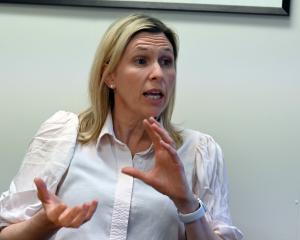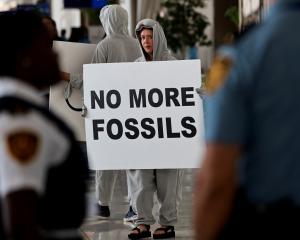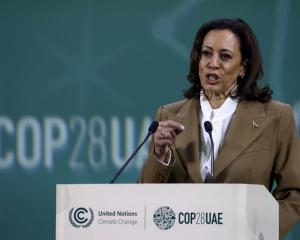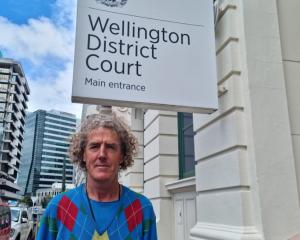The 193-nation summit was called to achieve a binding international agreement to cut greenhouse gas emissions, but ended with nothing more than a commitment to limit global warming to 2degC.
There are no firm plans on how to do that and another summit will be held in Mexico next year.
The summit was beset by divisions between developed and developing countries and associate climate change minister Tim Groser said tonight it was a disappointing result after all the political investment that went into it.
Mr Groser didn't think developed countries were to blame.
"They were presented with a conference that was complete madness, that was blocked by extremist procedural tactics," he said on One News.
"I hope they will reflect, just as we are reflecting, on why exactly this conference got bogged down to the point where it produced, out of a mighty roar, just a little tiny result."
However, Mr Groser said it was a start and he hoped it would turn into a binding deal when talks resume next year.
Earlier today Prime Minister John Key, who was also at the conference, said the deal reached was short of the aspirations and expectations people held.
Green Party leader Jeanette Fitzsimons said it was "a tragedy for humanity" while Labour's climate change spokesman Charles Chauvel thought it would be possible to build on the agreement.
Mr Key said that from New Zealand's point of view there had been good progress in some areas.
"We want to have the rules altered to allow us to harvest forests that are pre-1990 and re-plant them in other parts of the country," he said.
"We also want to have the position where we can lock up emissions where wood is harvested but used in the production of furniture and the like (rather than have it count as being consumed and its emissions released on felling)."
'Mr Key said significant progress was made on acceptance of those rule changes, although it hadn't been ratified by all countries.
"From New Zealand's point of view we can come away and say it's been a victory, in so much that we have made progress in the changes to the rules," he said.
Mr Key said New Zealand's initiative to get global cooperation on research to reduce emissions from agriculture had also gone down well.
Deputy Prime Minister Bill English, who didn't go to the conference, said leaders had made the best of the situation they found themselves in.
"We've still got our national interest to negotiate for and we haven't given anything away in this round," he said.
A wide range of proposals were put up at the conference around emissions reduction targets, but none were agreed.
New Zealand's conditional target is to reduce emissions by 10 percent to 20 percent on 1990 levels by 2020.
Ms Fitzsimons was more disappointed than any other New Zealand politician.
"We came here wanting an ambitious, fair and binding agreement. The talks have failed on all three counts," she said.
"There are no country targets, only an appendix where countries offer non-binding reductions which collectively will not stop warming of two degrees."












